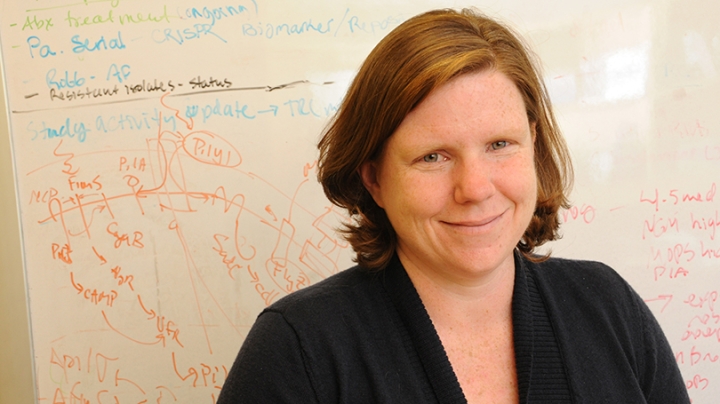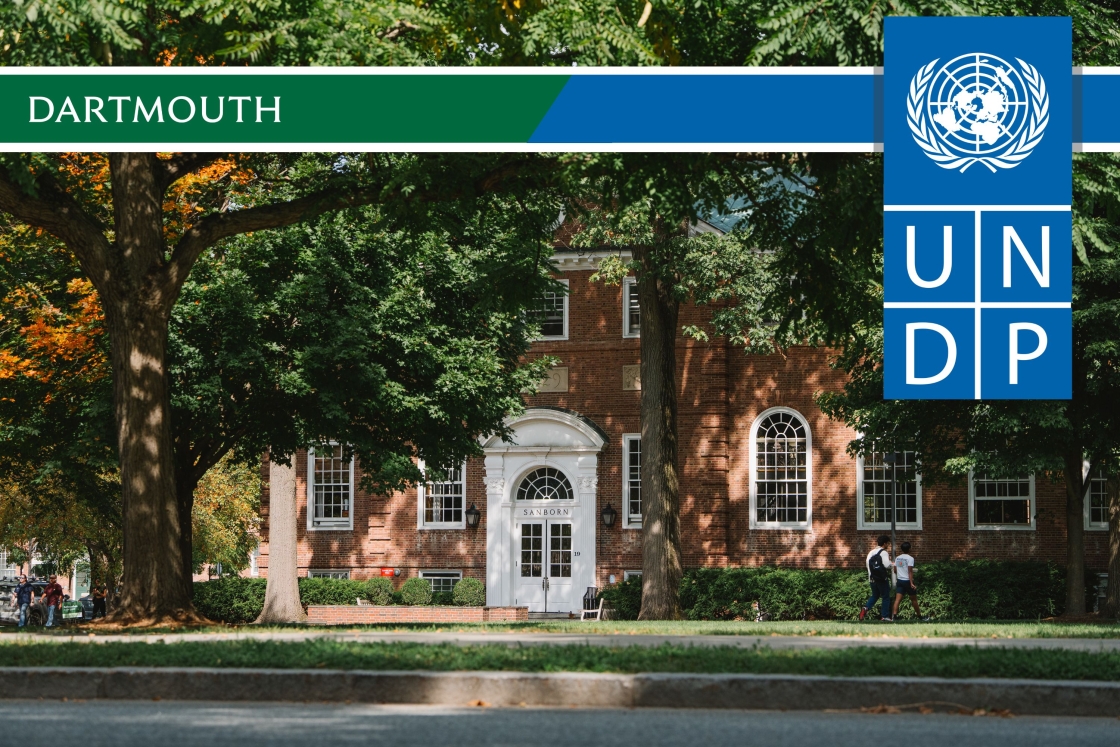Read the full story by Timothy Dean, published by the Geisel News Center.
Deborah Hogan, an associate professor of microbiology and immunology at the Geisel School of Medicine, has received the 2016 Dr. Thomas Maciag COBRE (Centers of Biomedical Research Excellence) Independence Award from the National Institutes of Health (NIH).
Established in 2006, the award recognizes individuals who “exemplify Dr. Maciag’s ideals of research excellence and commitment to mentoring,” and who have become independent researchers through a COBRE program. Thomas Maciag was a cell and vascular biologist who earned international recognition for his work as a scientist, artist, and mentor to graduate students and postdoctoral fellows in the areas of angiogenesis and development.
Funded by an Institutional Development Award (IDeA) from the NIH’s National Institute of General Medical Sciences, COBRE programs are designed to help academic institutions build centers of excellence in biomedical research and advance the work of junior faculty investigators who will assume mentoring and leadership roles in the future.
“It’s very nice to be recognized in this way,” says Hogan, who will receive the award and give an award lecture at the upcoming National IDeA Symposium of Biomedical Research Excellence in Washington, DC. “For me, it’s a reflection of the fact that there’s a great mentoring culture here at Dartmouth, thanks to people like Dr. Bruce Stanton, and that I’m surrounded by wonderful colleagues who are excellent scientists and a pleasure to mentor.”
Hogan joined the Dartmouth Lung Biology COBRE as a junior project leader in 2007, under the direction of Stanton (the principal investigator). While receiving COBRE support for her research, she published more than 20 papers, revealing new metabolic pathways that control the biology of chronic bacterial and bacterial-fungal interactions and hold promise for treating airway infections in cystic fibrosis.
Through this work, she was able to secure substantial grant funding from the Cystic Fibrosis Foundation and the NIH as an independent researcher. Today, the Hogan Lab is a recognized leader in studying microbial interactions in mixed species chronic infections. “We focus on intercellular microbial interactions, and our goal is to use what we learn to improve our ability to treat infectious diseases,” says Hogan, who has now published nearly 60 research publications and received more than $2.5 million in grant funding over the past five years.
“I am very pleased to see Deb receive this award to recognize all her success in her research program and in her service to our community through mentoring,” says Duane Compton, interim dean of Geisel.

